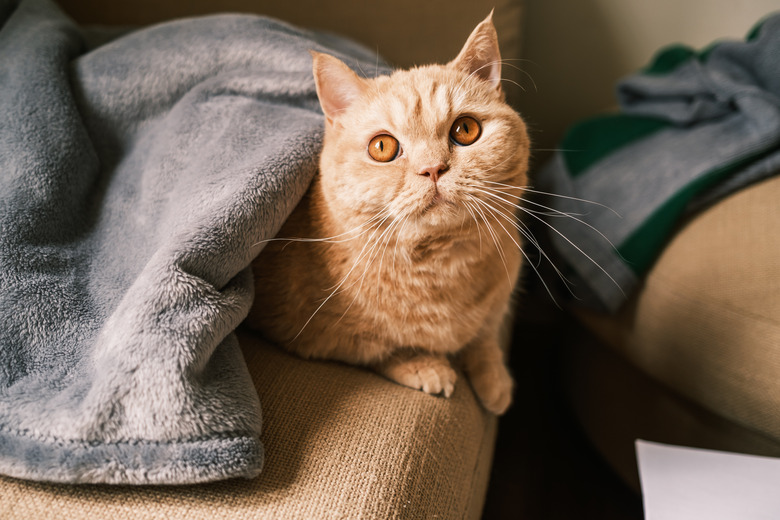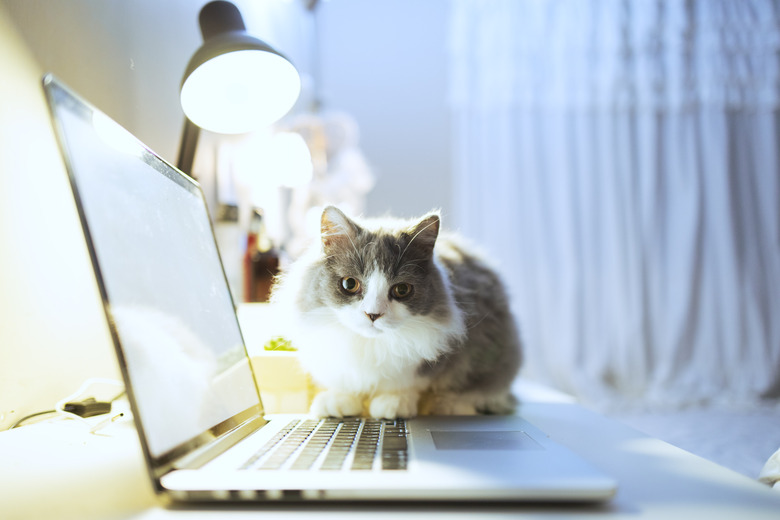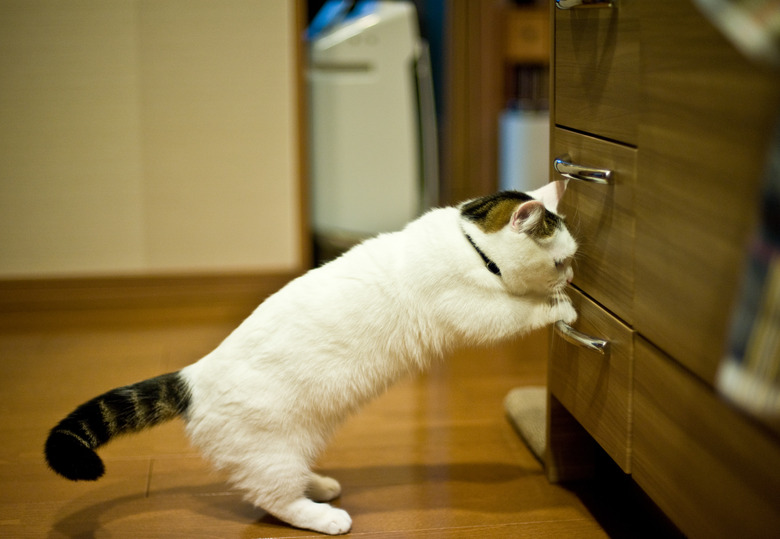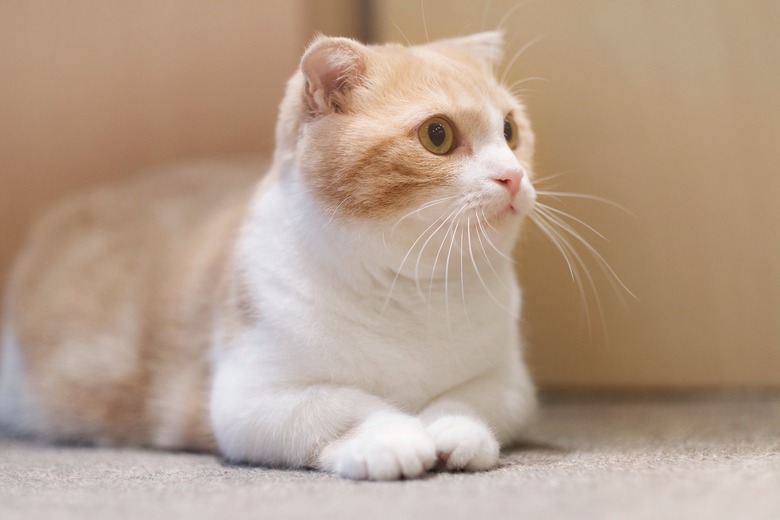Munchkin Cat Breed Characteristics
Munchkin cat quick facts
Munchkin cat quick facts
Length: 11 – 14 inches long
Weight: Females: 5 – 7 pounds, Males: 7 – 10 pounds
Lifespan: 15 – 18 years
Coat length: Short or long
Coloring: All coat colors and patterns
Grooming needs: Low to medium
Friendliness: Breed alone is not an accurate predictor of individual cats' personalities. However, munchkin cats are generally regarded as affectionate and curious.
Munchkin cats live up to their name with their short legs and small stature. They are often compared to dachshunds as their body is so much longer than their legs. The munchkin is not a legally recognized breed by most organizations including the Cat Fanciers' Association, as there are a number of health and welfare concerns associated with the breed. In fact, only the International Cat Association (TICA) and the Southern Africa Cat Council recognize the breed.
Despite the controversy, the munchkin cat's adorable appearance and friendly and affectionate personality are sure to capture your heart. Carefully consider the breed's personality and care requirements before deciding to welcome one of these short-legged cats into your home.
Munchkin cat history
Munchkin cat history
The munchkin cat breed's official history starts in 1983 when a woman named Sandra Hochenedel found an abandoned, pregnant cat that was later named Blackberry. Some of the kittens in the litter had short legs and Hochenedel gave one of these male kittens, named Toulouse, to Kay LaFrance. The two later bred Toulouse and Blackberry, which was the beginning of the munchkin cat breed.
Although it is a fairly new breed to the few organizations that recognize it, short-legged cats are not new. While not common, short-legged kittens have been reported by veterinarians and breeders around the world.
The short legs are the result of a natural genetic mutation. It is passed on to kittens through an autosomal dominant gene. This means that the kitten only needs one copy of the gene to display the shortened leg length. In order to increase genetic diversity, breeders allow outcrosses to other domestic cats.
Munchkin cats were named after the munchkins in "The Wizard of Oz" by L. Frank Baum. They have several nicknames including:
- kangaroo cat
- sausage cat
- magpie
Although this breed of cat looks small due to their short stature, they are generally medium-sized cats with a normal body length. They have a long back relative to their height, though, similar to dog breeds such as dachshunds and corgis. The breed may be short or long-haired and there are no restrictions on coat color or pattern.
Munchkin cat personality
Munchkin cat personality
The munchkin cat is friendly and affectionate. They are not only loving towards family members but they also tend to be friendly and sociable with strangers as well. Their open nature makes them a good choice if you are looking for a cat that will fit in with children and other pets.
The breed tends to be very loving and loves cuddling and a good snuggle while you are relaxing. They are also quite playful and curious. They love to chase toys and run around the house. They enjoy jumping but the munchkin's short legs aren't able to jump as high as other cats. They also have a very curious nature and it is not uncommon to see a munchkin cat standing on their hind legs.
Many munchkin cats also have an interesting quirk that has earned them the nickname magpie. The cats are attracted to shiny objects and will collect and stash them whenever they can.
Munchkin cat lifespan and health issues
Munchkin cat lifespan and health issues
Healthy munchkin cats can live for 15 to 18 years or more. Responsible breeders will outbreed their munchkin cats with other domestic long or short hair cats to help prevent health issues.
One genetic health problem that affects the breed is called lordosis, a spinal problem that causes the spine to dip in the front of the shoulder blades. This can cause mild or severe symptoms that are caused by the malformed spin compressing the cat's internal organs. If the lordosis is mild, cats may breathe shallowly or have shortness of breath. More severe cases can become painful and, in some cases, even fatal.
Munchkin cat grooming and care
Munchkin cat grooming and care
Munchkin cats require only minimal grooming to remove any loose hair. Short-haired munchkins should be groomed once per week while long-haired munchkins need to be groomed at least twice per week to prevent matting. Some cats will also benefit from an occasional bath with a gentle shampoo designed for cats.
Check and trim the cat's nails regularly and brush their teeth with veterinarian-approved toothpaste for cats. Feed a high-quality commercial cat food as directed by your veterinarian and make sure fresh drinking water is available at all times. Select food and water dishes with low sides so that the short-legged cats can eat and drink easily.
Welcoming a new cat into your home
Welcoming a new cat into your home
Before bringing a munchkin kitten into your home, take some time to cat-proof your home and purchase all of the supplies your new cat will need. This includes:
- food and water dishes
- litter box
- scratching post
- cat tree
- toys
Make sure you remove anything that may be dangerous to your cat, including any harmful plants. While munchkin cats may not be able to jump to high shelves like other cats, they may find a way to climb up if there is a path available, so make sure everything on your shelves and tables are cat safe. Keep in mind munchkins enjoy shiny objects, so put away any jewelry or small collectibles.
When you first bring your kitten home, put them in a single room where they can safely explore and get used to the new sights, sounds, and scents. Allow the cat to approach you when they are ready rather than holding them still to be petted. Spend plenty of time with the cat and always use positive reinforcement.
If you have children or other pets in the home, introduce them to the new munchkin cat. Once your cat is comfortable with the room, you can open the door to allow them access to more of the house. Before you know it, your munchkin cat with be an active and loving part of the family.



